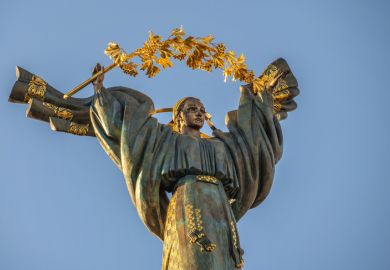Historians is a collection of essay profiles or biographical sketches of 28 leading practitioners of that trade, first published in the magazine History Today between 1998 and 2005. The profiles have been up-dated, rather unhistorically, by the subjects themselves, who were invited to furnish a CV and bibliography and, if they wished, an epilogue.
Several avail themselves of the opportunity; oddly, some of them write in the third person. Since the book seems not to have had any editing, the curiosity is compounded by the standard presentation.
Thus, Antonia Fraser writes: "Antonia Fraser is now in her 75th year. Her biography of Marie Antoinette, subtitled The Journey , was published in the UK and the US in 2001; it won the Franco-British Society Award in this country, was a bestseller on both sides of the Atlantic and has since been or is being translated into ten languages. The most recent is French. The French publishers, who ignored her work after Marie Stuart in 1973, presumably took courage from the prospect of Sofia Coppola's film of Antonia Fraser's book..."
The historians were also invited to correct any errors of fact in the original version. One or two of them elected to correct what they took to be errors of judgment on the part of the profiler.
The original remit was "historians of proven excellence who were still publishing and whose work had reached a wide audience and raised issues beyond the purely scholarly". Daniel Snowman himself is a kind of fellow traveller and fellow practitioner, well read and well connected; his own taste and acquaintance has clearly informed the selection.
The result is a bevy of star names. (What is the collective noun for historians? A haven? A hive? A hoo-ha? A hoopla?) Of course some names are bigger than other names. Telehistorians and practised communicators bulk large. Middle-aged men bulk larger. In this company, "the media tart" (Lisa Jardine on Lisa Jardine) is high gloss, high art, high income and, typically, male. Across the board they are mostly British, or by transplantation and acculturation Anglo-American. In terms of sociocultural caste marks, a crude analysis might yield four types. There are the scholarship boys (and girls): Asa Briggs, Peter Burke, David Cannadine, Linda Colley, Norman Davies, Christopher Dyer, Richard Evans, Ian Kershaw, David Starkey. There are the bookish bourgeois: Jeremy Black, John Brewer, Niall Ferguson, Felipe Fern ndez-Armesto, Eric Foner, John Keegan, John Morrill, Laurence Rees, Lyndal Roper, Simon Schama. There are the intellectual aristocracy: Orlando Figes, Antonia Fraser, Roy Foster, Lisa Jardine, Peter Stansky. And there are the rootless cosmopolitans: Natalie Zemon Davis, Eric Hobsbawm, Theodore Zeldin.
As to what kind of historians they are, their beats are various. They are more lumpers than splitters, perhaps, more parachutists than truffle hunters, to borrow the terminology of Emmanuel Le Roy Ladurie that so tickles his professional colleagues; but however grand the vision or epic the scale, they are still seized of the specificities, the particularities, the contingencies, the individual quirks and foibles that serve to animate the tale they have to tell.
Snowman's approach to his subjects is friendly, even cosy. All the profiles are admiring. Some are positively adulatory. Back to back, there is a certain sameness to them. So many model life stories - liberating education, creative gestation, Stakhanovite production, international recognition. Where the epilogue is self-regarding or self-congratulatory, as several of them are, satiety begins to set in. Snowman writes fluently and expertly about the historians' work, but his own sharpest insights might have been put to more general use. He notes that Schama, for example, developed a good eye for an anniversary; and that Fern ndez-Armesto, like Descartes, seems as anxious to be original as to be right. Similarly, interesting or self-revealing observations from the historians themselves are rarely followed up. Hobsbawm remarks that he might have been a social anthropologist. One wonders what the others might have been. Zeldin appears to identify himself as a moralist in a long line of moralists. Is this identity shared?
There are compensations. Historians are often good talkers, and Snowman has succeeded in eliciting some excellent lines. "The most illuminating history is often written to show how people acted in the expectation of a future that never happened." (Foster); "One of the reasons I am attracted to these overambitious projects is that even if nobody learns anything from reading my books, I learn a lot from writing them" (Fern ndez-Armesto). But it is the oldest of this company, the evergreen Hobsbawm (born 1917), who comes nearest to an epitaph. The business of the historian, he says, "is to remember what others forget".
Alex Danchev is professor of international relations at Nottingham University.
Historians: Are Historians the High Priests of Modern Society?
Author - Daniel Snowman
Publisher - Palgrave Macmillan
Pages - 320
Price - £19.99
ISBN - 1 4039 8805 6
Register to continue
Why register?
- Registration is free and only takes a moment
- Once registered, you can read 3 articles a month
- Sign up for our newsletter
Subscribe
Or subscribe for unlimited access to:
- Unlimited access to news, views, insights & reviews
- Digital editions
- Digital access to THE’s university and college rankings analysis
Already registered or a current subscriber? Login



